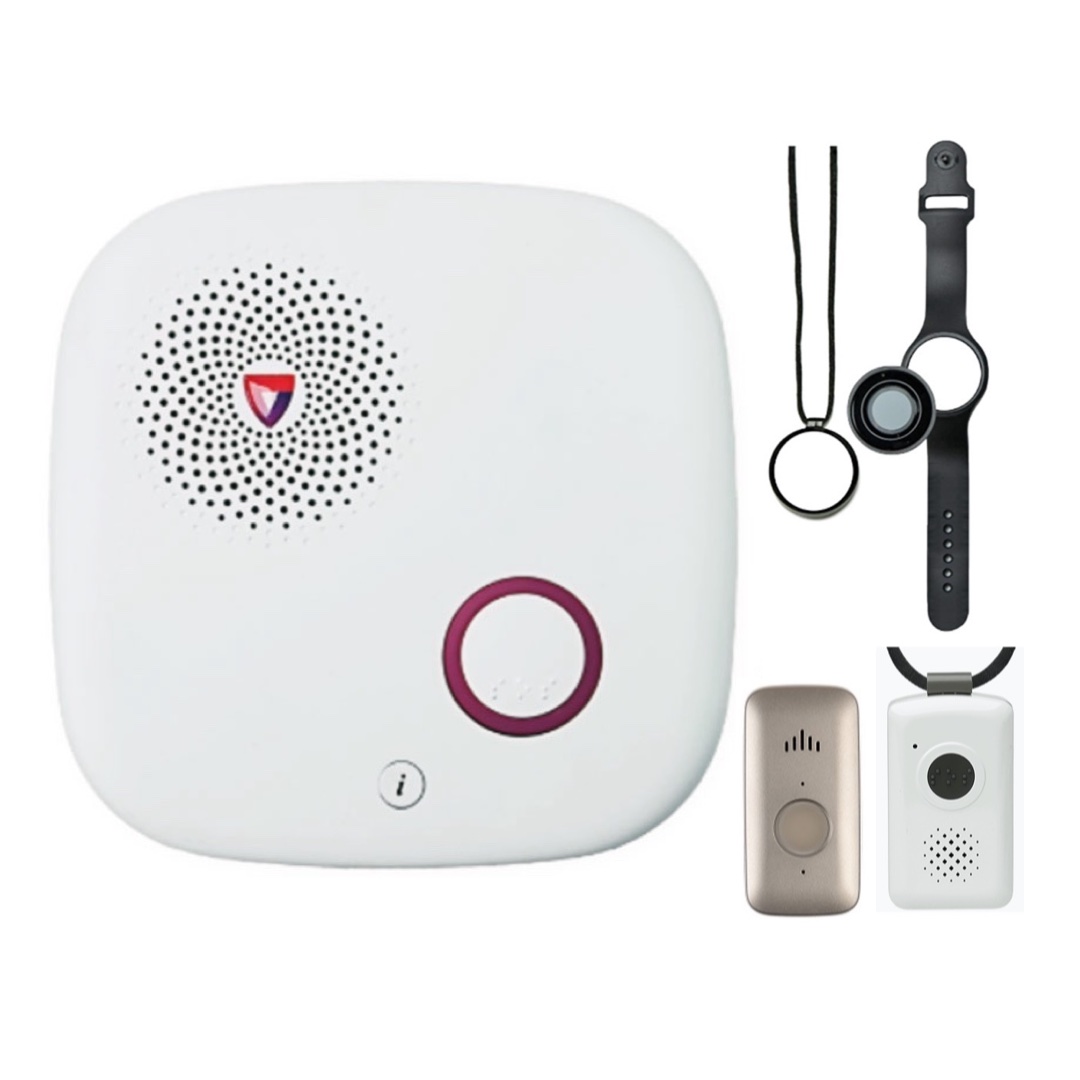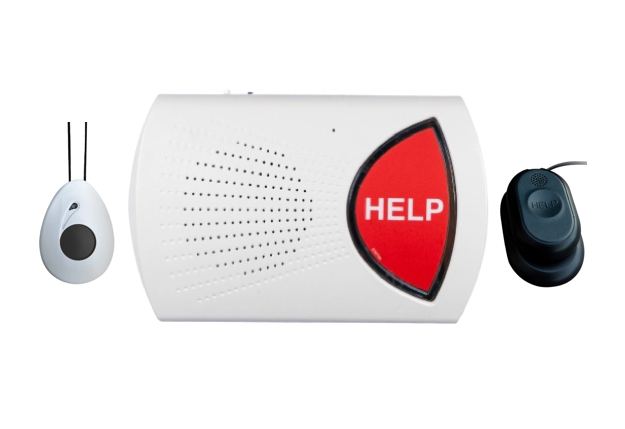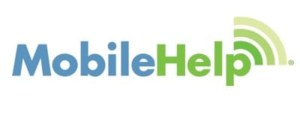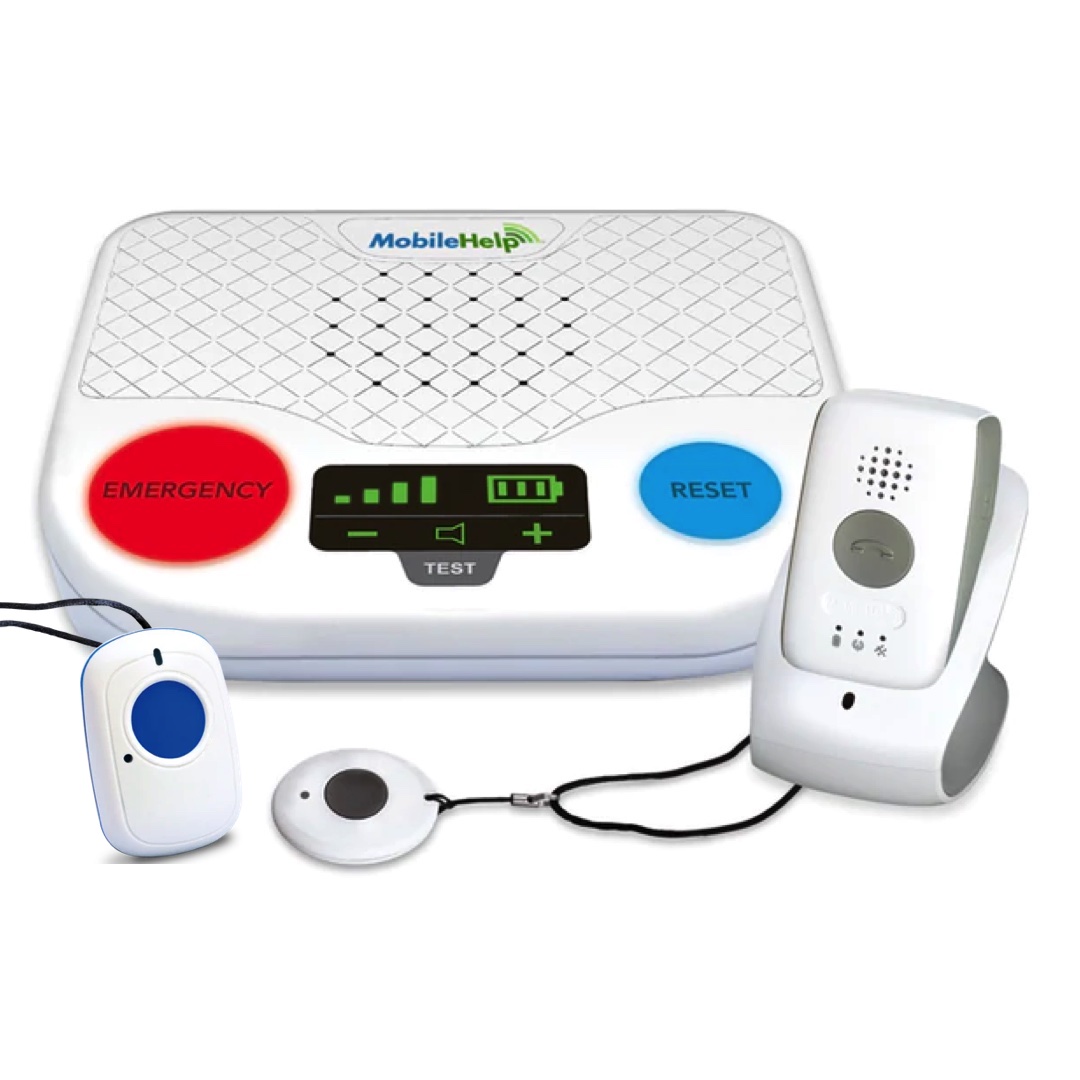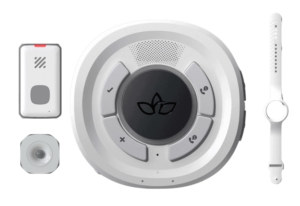The Best Medical Alert Systems With Fall Detection
AgingInPlace.org keeps our resources free by working as an affiliate partner with some companies mentioned on our site. These partnerships or the commission we may earn do not affect our opinions or evaluations of the products we mention. Our reviews are solely based on our research methodology and from input from our AgingInPlace.org Advisory Board. Learn more about our ad policies.
The Best Medical Alert Systems With Fall Det...
Products carousel
In older adulthood, the thought of falling becomes complex. Many older adults live alone or with a partner of similar age and may not have someone around who is capable of providing immediate help. Medical conditions, surgeries, even medications can greatly affect your stability and increase your chance of falling. Injuries from falls in older adulthood can take longer to recover from, and just the fear of falling can affect your social life, mental health, and overall well-being. Wearable fall detection devices available with medical alert systems can provide older adults with a sense of security.
Modern medical alert systems have impressive coverage and more options than ever, such as voice-activated devices. Those that double as fall detection devices give peace of mind to older adults and their family members. In a recent survey of medical alert system users conducted by AgingInPlace.org, 89% of all users reported being concerned about falls, with over 47% stating that falling is one of their biggest daily fears. Over 90% of responders reported feeling more confident in their daily lives thanks to their device. That’s why we’ve researched and reviewed the best medical alert systems with fall detection, to help you choose the best one for your needs and lifestyle.
See which brands made our “best medical alert systems with fall detection” list, and consider the benefits of knowing you’re always covered.
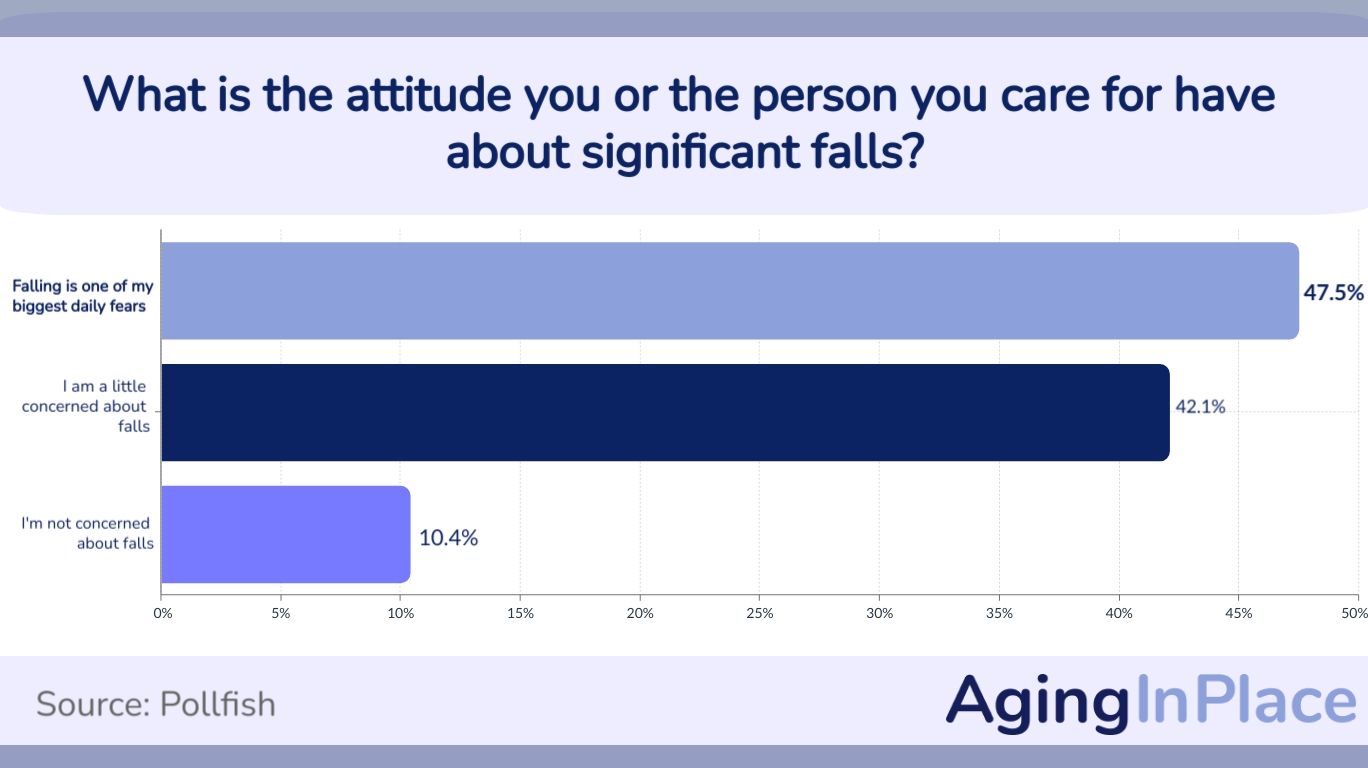
Best Medical Alert Systems With Fall Detection in 2023
- Best for an Active Lifestyle: Medical Guardian
- Best Pricing Options: Bay Alarm Medical
- Best At-Home System: MobileHelp
- Best Customer-Friendly Practices: ADT
- Best for Impaired Mobility: Aloe Care Health
- Best Hands-Free System: GetSafe
- Best Extended Coverage: Medical Alert
Our Research Methodology
We independently research and recommend products we believe provide value to the lives of our readers. We’ve collectively spent more than 1,700 hours conducting in-depth research on medical alert systems.
To decide on our top medical alert systems with fall detection, here’s what we did:
- Tested 34 devices across 12 medical alert system brands
- Engaged in ongoing independent research
- Consulted with geriatricians and adult caregivers
- Mystery shopped the brands
- Surveyed medical alert system users
- Tested various medical alert systems
- Interviewed experts in the field
- Read hundreds of verified customer reviews from trusted third parties such as Better Business Bureau and Trustpilot
We tested the fall detection accuracy of each fall detection pendant and mobile system. We did this by following the individual fall detection testing instructions for each brand and recording if the device detected a fall then automatically contacted the monitoring center.
Our team also tested each pendant and mobile device’s durability by conducting two types of water tests. If the device was water-resistant, we did a splash test. If it was waterproof, we submerged the device as a test.
See our full explanation of how our methodology for a full breakdown of criteria in each category and our scoring system.
Comparisons of the Top Medical Alert Systems with Fall Detection
| In-Home Range | Connection Type | Mobile Battery Life | Water-resistant | Contract | |
|---|---|---|---|---|---|
| Medical Guardian | 500 to 1,300 feet | Landline or cellular | Up to 5 days | ||
| Bay Alarm Medical | 1,000 feet | Landline or cellular | 3 days | ||
| MobileHelp | 600 feet (landline) or 1,400 feet (cellular) | Landline or cellular | 2 days | (pendant and buttons only) | |
| Aloe Care Health | 200 feet | AT&T cellular | 5 days | ||
| ADT | 300 to 600 feet | Landline or cellular | Up to 40 hours | ||
| GetSafe | 800 feet | Landline or cellular | 3 days | ||
| Medical Alert | 800 feet | Landline or cellular | 5 days |
| Medical Guardian | In-Home Range | 500 to 1,300 feet | Connection Type | Landline or cellular | Mobile Battery Life | Up to 5 days | Water-resistant | Contract |
|---|
| Bay Alarm Medical | In-Home Range | 1,000 feet | Connection Type | Landline or cellular | Mobile Battery Life | 3 days | Water-resistant | Contract |
|---|
| MobileHelp | In-Home Range | 600 feet (landline) or 1,400 feet (cellular) | Connection Type | Landline or cellular | Mobile Battery Life | 2 days | Water-resistant | (pendant and buttons only) | Contract |
|---|
| Aloe Care Health | In-Home Range | 200 feet | Connection Type | AT&T cellular | Mobile Battery Life | 5 days | Water-resistant | Contract |
|---|
| ADT | In-Home Range | 300 to 600 feet | Connection Type | Landline or cellular | Mobile Battery Life | Up to 40 hours | Water-resistant | Contract |
|---|
| GetSafe | In-Home Range | 800 feet | Connection Type | Landline or cellular | Mobile Battery Life | 3 days | Water-resistant | Contract |
|---|
| Medical Alert | In-Home Range | 800 feet | Connection Type | Landline or cellular | Mobile Battery Life | 5 days | Water-resistant | Contract |
|---|
Best Medical Alert Systems With Fall Detection in Detail
Best for an Active Lifestyle: Medical Guardian
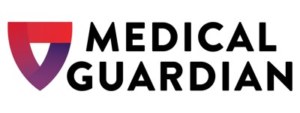
Editor’s Choice
Devices Available with Fall Detection:
Classic Guardian: This home system offers 1,300 feet of coverage that connects to your landline phone.
Home 2.0: Connected to the 4G network, this home system has extended range and voice-assist technology.
Mobile 2.0: The brand’s lightweight mobile monitoring system is connected through 4G LTE, Wi-Fi, and GPS.
Mini Guardian: This is the brand’s smallest and most discreet mobile monitor, with 4G cellular coverage and Wi-Fi and GPS location tracking.
Top Features:
- 1,300-foot range for the at-home landline system and 1,400-foot protection range for the at-home cellular system
- Lightweight mobile devices and smartwatch option
- Less than 15-second response time during our system test
Pros
-
TMA Five Diamond Certified monitoring center
-
Five packages available: two at-home and three on-the-go, including the MGMove Smartwatch
-
Product quiz to help you find the best device for you
Cons
-
Limited one year warranty available (device protection plan costs extra)
-
Locks you into a contract that is month-to-month after a three-month minimum commitment
Talk to a Medical Guardian Advisor
If you’re ready to take the next step in purchasing a Medical Alert System, a Medical Guardian advisor can help you make the right choice.
Editor’s Choice
What Is Editor’s Choice?
Our team of editors and writers choose a product from each article that stands out based on our extensive research of the products we review. While it may not always be the highest-scoring product in the lineup, we’ve chosen the product based on its overall value to our audience.
Why We Chose This Product:
Medical Guardian is one of the most well-known names in medical alert systems, and we think they do a great job of upholding their reputation. The Mini Guardian stands out because of its built-in fall detection technology. This compact device is barely the length of a chapstick tube, resting lightly around your neck without getting in the way of your favorite activities at home or on the go.
If you need an easy-to-use mobile medical alert system for outside the home, the Mini Guardian is an excellent choice. Medical Guardian is one of the few companies we found with an all-in-one fall detection device for protection while you’re out and about. You can wear the 1.4-ounce Mini Guardian device on its detachable lanyard or easily clip it to your belt or bag.
Another unique benefit of the Mini Guardian is its advanced location monitoring that can connect to 4G LTE, Wi-Fi, and GPS for a faster connection speed. In the event of a fall, quick connection to the call center and dispatch is essential for sending help as soon as possible, but GPS location is especially important for locating you accurately. For example, falling in a public place, like a bathroom where you’re likely alone, could leave emergency services wasting minutes looking for your exact location. GPS-location capability sends help to your exact location, even if you’re unable to respond. With the included MyGuardian customer portal, you can also set up a network of emergency contacts to view your location and receive alerts if necessary.
Medical Guardian has an A+ rating on BBB, but a low consumer rating with 1.2 out of 5 stars, though the number of the reviews is modest. However, on the company’s website, they have 4.5 out of 5 stars with thousands of reviews. Although the company is also rated low on *Trustpilot, a closer look shows that more than 70% of the reviews posted are either “excellent” or “good.” Most of the negative reviews mention billing concerns, so if you go with Medical Guardian, be sure to monitor your bill and speak with them right away when you have a concern. The company bills automatically, which can surprise people who may forget about the recurring monthly charge.
*Trustpilot’s scoring platform doesn’t simply collect an average of reviews but is affected by three main factors: Recent reviews weigh more heavily than older ones; companies that collect reviews more frequently will have a more consistent score; and to ensure balance for companies with fewer reviews, Trustpilot automatically includes the value of seven reviews worth 3.5 stars in all calculations.
Devices Available with Fall Detection:
In-Home Medical Alert System: With a 1,000-foot signal range, this in-home system comes with your choice of a pendant or wristwatch help button.
SOS Mobile: This lightweight device, worn by easily clipping onto clothing like a waistband or belt, is designed for active and mobile adults that uses cellular connectivity to keep you protected anywhere.
Top Features:
- On-the-Go Help Button mobile system monthly fee is lower than most competitors ($29.95 per month)
- Free GPS monitoring services with mobile and smartwatch subscriptions
- Can add at-home monitoring for your partner or roommate by purchasing an additional help button—no additional subscription required
Pros
-
30-day money-back guarantee
-
The Monitoring Association (TMA) Five Diamond Certified monitoring center
-
Locked into your original monthly price even if the cost increases over time
-
Great reputation and customer reviews—it has an A+ rating on Better Business Bureau and a customer review rating of over 4 out of 5 stars
Cons
-
Landline and cellular at-home systems have the same protection range from the base station (1,000 feet)
-
Limited warranty only covers the base station (device protection plan costs extra)
Talk to a Bay Alarm Medical Advisor
If you’re ready to take the next step in purchasing a Medical Alert System, a Bay Alarm Medical advisor can help you make the right choice.
We recommend Bay Alarm Medical for anyone looking for flexibility in pricing and packages. They have a variety of options and features to choose from, allowing you to customize your plan to suit your needs and budget. As an add-on service for an additional monthly fee, automatic fall detection is available with the in-home system by wearing a fall detection pendant or with the SOS Mobile which has built-in fall detection capability. If sudden downward motion is followed by lack of movement (meaning you’re unable to get up), the detection system is triggered to automatically initiate a fall response.
Bay Alarm Medical is one of the few medical alert system options for couples who both want on-the-go coverage. While the first mobile GPS is $29.95 a month, the second one is only $20 (after purchasing the device for $79). You won’t need to pay an additional monthly fee for two mobile buttons—you’re both covered under one monthly monitoring service fee of up to $49.95, depending on your plan. Purchase fall detection for either one button (additional $10 per month) or both (additional $20 per month).
Bay Alarm Medical’s mobile GPS button is also a stand-alone device, so you don’t need to carry two pieces of equipment with you when you leave home.
Bay Alarm Medical receives generally good reviews, with an A+ rating from the Better Business Bureau (BBB) and 4.1 out of 5 stars with over 900 reviews on Trustpilot. Among the largely positive reviews, the negative statements are mostly regarding billing issues and customer service. In this case, it’s best to be clear on charges, fees, and cancellation policies before proceeding with Bay Alarm Medical in order to avoid any unexpected difficulty.
Devices Available with Fall Detection:
Fall Button: This user-operated call button with automatic fall detection is compatible with the Classic, Solo, and Duo systems.
Top Features:
- 1,400-foot protection range with at-home cellular system
- Offers three at-home options and more advanced at-home devices like the digital tablet Touch Classic
- Connect virtually with a board-certified doctor with MDLIVE telehealth for an additional monthly fee
Pros
-
30-day money-back guarantee
-
Medication reminder available
-
Product quiz to help you find the best device for you
-
Eight packages available: three at-home options, two on-the-go options, and three bundle options
-
Classic, Solo, and Duo systems are compatible with automatic fall detection for ultimate customization
Cons
-
$49.95–$99.95 processing fee charged for some devices
-
Monitoring center not TMA Five Diamond Certified
Talk to a MobileHelp Advisor
If you’re ready to take the next step in purchasing a Medical Alert System, a MobileHelp advisor can help you make the right choice.
MobileHelp has some of the most extensive add-ons and unique perks, and much of what they offer is specifically beneficial as a companion to fall detection. For example, medication reminders can prevent falls due to missed or poorly timed medication administration, which can result in symptoms like dizziness or confusion. Activity and health tracking encourage movement to build coordination and strength, reducing the risk of falling from generalized weakness.
Their MobileHelp Touch plans with touchscreen tablets are an innovative alternative to traditional in-home base monitored systems. The tablets are interactive and easy to read, so you can check your activity levels, play brain games, or even add photos of your family to play on a loop when it’s charging.
MobileHelp offers various in-home, on-the-go, and combination systems, making it a viable safety solution for most older adults. We also recommend MobileHelp for couples, thanks to the Mobile Duo plan. This is the only two-for-one GPS medical alert system in the industry starting at $44.95 per month. You and your partner have individual mobile systems, so you’re both protected when away from your home either together or apart.
MobileHelp has an A+ rating on BBB and 4.54 out of 5 stars. While most complaints seem relatively standard compared to complaints with similar companies, we are impressed by the thorough response MobileHelp offers for each negative review. You’ll find the same thing with MobileHelp’s Google reviews, where they are rated 4.5 stars out of 5 with hundreds of reviews. Each negative review has a straightforward and respectful response posted from MobileHelp.
Devices Available with Fall Detection:
Fall Detection Pendant: This lanyard has built-in fall detection and is an add-on for the Medical Alert Plus and On-The-Go.
Top Features:
- At-home systems include home temperature monitoring
- Free next-day shipping available
- Discounts typically available for current ADT customers
Pros
-
Up to seven fall detection pendants available
-
Free equipment protection plan included
-
No equipment, activation, or shipping fees
Cons
-
Fall detection not available for landline system
-
Mobile system doesn’t have built-in fall detection
-
No caregiver app or portal available
Talk to an ADT Advisor
If you’re ready to take the next step in purchasing a Medical Alert System, an ADT advisor can help you make the right choice.
Even though fall detection isn’t available for ADT’s in-home landline system (Medical Alert Basic), we included the company here due to its reliable fall detection for the Medical Alert Plus and On-The-Go, as well as its customer-friendly practices. ADT offers free next-day shipping, no equipment or activation fees, a 24/7 sales team, and frequent discounts on fall detection or monthly monitoring service fees.
ADT’s medical alert systems are Medical Alert Basic, Medical Alert Plus (in-home cellular system), and On-The-Go. The three standard packages are excellent for first-time shoppers that may be overwhelmed by too many choices. Fall detection is available for an additional $10 per month for the Medical Alert Plus and On-The-Go, but it’s not compatible with the Medical Alert Basic. We see this as a major drawback for users who have poor cellular connection at home.
You’ll receive an additional fall detection lanyard and fall detection guide when you add the feature to the Medical Alert Plus or On-The-Go. You must wear the fall detection lanyard for fall detection to work. This is common with in-home systems like the Medical Alert Plus, but mobile devices often have built-in fall detection technology.
Wall buttons are an available add-on accessory for Medical Alert Plus and On-The-Go. While these standard push buttons don’t have motion-sensing technology, they can be placed in high-risk areas near the ground in case of a fall. The buttons connect to the monitoring center via the base station or mobile system.
Devices Available with Fall Detection:
Mobile Companion Go: This mobile emergency call button is wearable around your neck on a lanyard and has automatic fall detection technology.
Essentials Plus: For on-the-go coverage and fall detection, this 4G LTE home system is connected with Mobile Companion Go.
Total Care: You get everything you get with Essentials Plus, along with in-home fall detection with the Smart Fall Sensor.
Top Features:
- The base station (the Hub) has built-in motion, home temperature, and air quality sensors.
- The Aloe Care app is included with all subscriptions. Caregivers receive updates during an emergency and call the base station, all by using the app.
- Free fall detection is included with the Mobile Companion Go (but fall detection isn’t available with other devices).
Pros
-
30-day money-back guarantee
-
TMA Five Diamond Certified monitoring center
-
Free caregiver app with unlimited users
Cons
-
Only a 200-foot range from the base station
-
You must say “Emergency” several times to get an emergency response from the Smart Hub or fall detection sensor
-
In-home fall detection is only available in one room unless you buy the Mobile Companion Go
-
Expensive equipment fees ($99–$349.99)
Talk to a Aloe Care Health Advisor
If you’re ready to take the next step in purchasing a Medical Alert System, a Aloe Care Health advisor can help you make the right choice.
For emergency medical assistance in smaller houses or specific rooms, Aloe Care Health offers some of the most helpful options. The Care Button has a range of up to 200 feet, making it ideal for less active people. If you need further coverage, the Mobile Companion Go (previously the Mobile Companion) is an optional wearable fall detection device.
With the Total Care package, you’ll get two motion sensors you can install anywhere, which can be set up for alerts indicating unusual activity or lack of normal movement in the home. But what sets the brand apart is its wall-mounted device that automatically detects falls. This is perfect for a bathroom or other area with a higher risk for falls, as well as comprehensive protection for anyone living in a smaller home or apartment.
Aloe Care Health also has a great mobile app that empowers caregivers to communicate, stay in touch, and monitor air quality and room temperature. If you can look past some higher one-time equipment fees, Aloe Care Health’s fall detection solutions can offer older adults peace of mind.
The company doesn’t currently have a review profile on either Trustpilot or Better Business Bureau, so it’s a little hard to get the full picture of what people are saying about them. They do however have a 4.5-star rating with Google, but there are minimal reviews. The positive reviews focus on ease of use with the product and excellent customer service.
Devices Available with Fall Detection:
Help Button: This wearable button is included with all plans and offers optional automatic fall detection.
Top Features:
- Voice-activated emergency response doesn’t require you to wear a button
- Three available packages designed to fit different home sizes (0–1 bedroom, 2–3 bedrooms, and 4–5 bedrooms), and you can also customize your package
- Can bundle fall detection and GPS tracking services for $10 per month
Pros
-
30-day money-back guarantee
-
At-home medical alert system designed so users can move freely around their home without wearing a button
-
Monthly price is the same for all packages
Cons
-
Add-ons can get expensive ($5–$79 per month)
-
Expensive equipment fees ($79–d id$279)
-
Warranty not included (device protection plan is an additional cost)
Talk to a GetSafe Advisor
If you’re ready to take the next step in purchasing a Medical Alert System, a GetSafe advisor can help you make the right choice.
If you want to make sure your entire home is covered, GetSafe is a great home medical alert system. GetSafe’s primary plan utilizes various voice-activated buttons around the home, so you don’t have to wear a wristband or pendant unless you want to. Keep in mind that you must use the wearable button for automatic fall detection.
GetSafe voice-activated wall buttons enable you to connect with a live operator even if you can’t reach the wall-mounted unit. These units also have pull cords connecting you with the call center.
Because GetSafe service is designed to cover your entire home for pendant-free use, there is more equipment than traditional wearable plans. You’ll have the in-home base unit along with traditional and voice-activated wall buttons that you can place strategically around the home. This translates into a higher cost to start with GetSafe because you pay for this equipment upfront.
GetSafe also offers on-the-go plans with GPS-activated buttons. However, these plans cost a bit more than similar services from most of the other companies we reviewed. We primarily recommend GetSafe to customers who want home-only protection.
Although GetSafe shows a 2.1-star rating on Trustpilot, a quick scroll through the reviews tells a positive story. Most of the reviews are glowing, and 81% of the total reviews on the site call the company “excellent” and give the company 5 out of 5 stars. Consumers highly praised GetSafe’s customer service.
Devices Available with Fall Detection:
Fall Detection Pendant: This is an optional add-on with the purchase of every Medical Alert system.
Top Features:
- The at-home system works in the U.S., Puerto Rico, Canada, and the Virgin Islands
- Free app included with all subscriptions
- A+ rating from the Better Business Bureau
Pros
-
30-day money-back guarantee
-
Landline and cellular at-home system have the same features
-
Product quiz helps you find the right device for you
-
App allows you to contact support, test your device, get notifications during an emergency, and monitor the user’s location
Cons
-
Monitoring center isn’t TMA Diamond Certified
-
Warranty not included (device protection plan costs extra)
-
The brand name is the commonly used name for devices in general, which may make it difficult to leave online reviews or find the brand in search results
Talk to a Medical Alert Advisor
If you’re ready to take the next step in purchasing a Medical Alert System, a Medical Alert advisor can help you make the right choice.
Fall detection with Medical Alert is simple, since their fall detection pendant can be used as a companion to any of their models and subscriptions. This lightweight and waterproof device can be used anywhere, and it can be triggered either by manually pressing the button or through automatic fall detection. Sensors in the pendant sense a fall as it happens, and if you’re unable to press the help button a call will be placed automatically to send help.
If you and your partner are both looking for a fall detection system, Medical Alert’s plans are among the most affordable. There is no monthly fee to add a second wearable button to protect your spouse with the Home System. And if you pay for a full six or 12 months, you’re both covered for $19.95 per month. The at-home systems also have extended coverage and work in the United States as well as Puerto Rico, the Virgin Islands, and Canada.
Keep in mind that you would have to purchase two Mobile System plans for each of you to have protection outside the home. Most companies—excluding MobileHelp’s Mobile Duo plan—don’t have plans with more than one wireless device.
Because Medical Alert has few add-ons, the pricing is straightforward, and the total cost of plans makes them one of the more affordable options. Fall detection costs an additional $10 per month and can be added to any one of their medical alert system plans.
While Medical Alert has an A+ rating from the BBB, they have 1.11 out of 5 stars from customer reviews. However, there are minimal reviews on third-party sites for Medical Alert, and the company’s website shows 4.3 stars out of 5 with more than 1,000 reviews.
AgingInPlace.org Tip: While you’re in the process of researching and choosing a fall detection device, it’s a great time to consider taking other measures to fall-proof your home! Many falls at home are the result of things like slippery surfaces, poor lighting, raised thresholds or difficult-to-navigate furniture or clutter. Surveying your home for fall hazards and making changes wherever possible is an important step towards preventing accidents.
What are Fall Detection Devices?
Fall detection devices are an optional accessory available with most medical alert systems (MAS), also known as personal emergency response systems. A wearable fall detection device has motion-sensing technology that’s triggered when fall-like motion is detected. These devices are typically separate from the primary system, but some have built-in fall detection technology, like the Medical Guardian Mini Guardian.
In case of a fall, the device sends a signal to a monitoring center, where a representative attempts to make contact to see if you’re okay. If you don’t respond or are hurt and need help, the representative contacts emergency responders and directs them to your location.
Why Is Fall Detection Important?
If you’ve had a recent fall, struggle with weakness, or have a condition that makes falls more likely, then you know the thought of falling is pretty frightening. Falls can be minor and maybe leave you with some bumps and bruises, but they can also be severe and constitute a major medical emergency. Three million older adults are treated in emergency rooms for fall-related injuries each year, according to the Centers for Disease Control and Prevention (CDC).
While all medical alert systems have a button that you can activate in the case of a fall or other emergency, you may not always be able to press the contact button if you’re too far away, injured, or even unconscious.
“Medical alert systems with fall detection can ensure a senior receives care when they fall, even if they lose consciousness or fail to remember to activate the alert system. They’re best for individuals with dementia who may forget to activate the emergency alert if they fall,” explained Melanie Musson, a senior health expert with InsuranceProviders.com.
So if you or a loved one are at a high risk of falling or have memory impairment or movement difficulties, automatic fall detection may be the safest option.
Types of Fall Detection Devices
Fall detection is a feature available with most medical alert systems brands, typically for a monthly fee in addition to the base package that you choose. The base system is usually one of the following options:
- In-home unit: These medical alert systems are best for at-home protection. Units are connected to landlines or a cellular network, depending on what is most reliable and accessible in your area and most appropriate for your needs and budget. While most in-home medical alert systems have a button on the unit allowing you to call for help without wearing a pendant, automatic fall detection buttons typically need to be worn as a lanyard since they work by sensing a quick, downward motion of your body.
- GPS or mobile systems: Also known as on-the-go devices, GPS units go with you when you leave home. These are great for mobile and active adults and function well both at home and away. Mobile medical alert devices are designed to be worn around the neck, on your wrist, or clipped somewhere on your clothing. Fall detection is often an add-on feature with an additional monthly fee. Depending on the brand and model, fall detection technology is either built into the device or included as an additional lanyard. Similar to a fall detection lanyard, the mobile system needs to be worn around the neck to detect a fall.
- Fall detection necklaces: With the exception of a few sensor-activated options, fall detection devices are usually available to wear around your neck as a lanyard or pendant in addition to your home or mobile unit. Lanyards and neck pendants are currently the most accurate fall detection devices on the market.
- Combination systems: These include in-home units and GPS on-the-go devices for maximum coverage anywhere, anytime.
Many companies are trying to improve smartwatch fall detection technology to offer a more modern, stylish, and multifunctional fall detection device. If you’re interested in a wristwatch-style fall detection device, the Unaliwear Kanega is currently the only one on the market offering this combination of safety, style, and functionality.
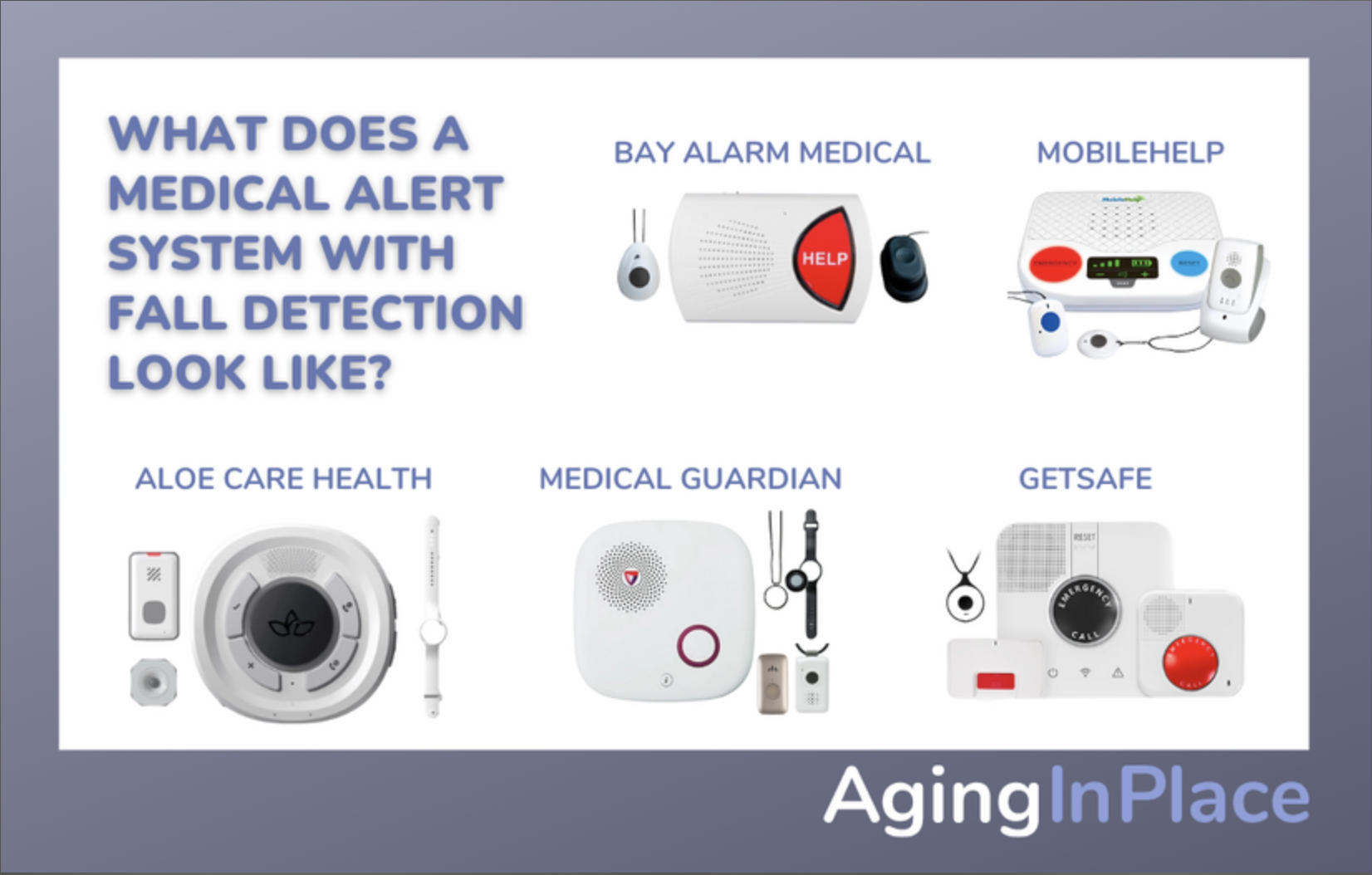
How Much Does a Medical Alert System With Fall Detection Cost?
| Monthly Base Cost | Fall Detection Cost | Equipment Fee | Activation Fee | Warranty | |
|---|---|---|---|---|---|
| Medical Guardian | Up to $44.95 | $10/month | $0–$149.95 | $0 | $6.99/month |
| Bay Alarm Medical | Up to $49.95 | $10/month | $0–$179 | $0 | $3–$5/month |
| MobileHelp | Up to $64.95 | $11/month | $0 | Up to $99.95 | $5/month |
| Aloe Care Health | Up to $49.99 | N/A | $99–$349 | $0 | N/A |
| ADT | Up to $39.99 | $10/month | $0 | $0 | $0 |
| GetSafe | Up to $39.95 | $10/month | $79–$229 | $0 | $5/month |
| Medical Alert | Up to $42.95 | $10/month | $0 | $0 | $5/month |
| Medical Guardian | Monthly Base Cost | Up to $44.95 | Fall Detection Cost | $10/month | Equipment Fee | $0–$149.95 | Activation Fee | $0 | Warranty | $6.99/month |
|---|
| Bay Alarm Medical | Monthly Base Cost | Up to $49.95 | Fall Detection Cost | $10/month | Equipment Fee | $0–$179 | Activation Fee | $0 | Warranty | $3–$5/month |
|---|
| MobileHelp | Monthly Base Cost | Up to $64.95 | Fall Detection Cost | $11/month | Equipment Fee | $0 | Activation Fee | Up to $99.95 | Warranty | $5/month |
|---|
| Aloe Care Health | Monthly Base Cost | Up to $49.99 | Fall Detection Cost | N/A | Equipment Fee | $99–$349 | Activation Fee | $0 | Warranty | N/A |
|---|
| ADT | Monthly Base Cost | Up to $39.99 | Fall Detection Cost | $10/month | Equipment Fee | $0 | Activation Fee | $0 | Warranty | $0 |
|---|
| GetSafe | Monthly Base Cost | Up to $39.95 | Fall Detection Cost | $10/month | Equipment Fee | $79–$229 | Activation Fee | $0 | Warranty | $5/month |
|---|
| Medical Alert | Monthly Base Cost | Up to $42.95 | Fall Detection Cost | $10/month | Equipment Fee | $0 | Activation Fee | $0 | Warranty | $5/month |
|---|
Medical alert systems and fall detection devices have a monthly monitoring service fee that varies based on the system, features, and medical alert company you choose. In addition to the monthly service fee, the cost of your medical alert system with fall detection capability may include:
- Equipment fees: You might pay upfront for equipment, shipping, a one-time processing or installation fee, or a lockbox fee (one-time or monthly cost). Some companies waive these fees when you start or if you pay annually.
- Add-ons: Some companies offer add-on features like medication reminders, caregiver apps, health monitors, and activity trackers, often at an additional cost per month.
- Additional buttons or devices: You might want extra wall buttons or a separate GPS device or fall detection button for your spouse. The cost of these varies, though certain providers offer free monitoring for additional devices. Some brands also offer connected devices like smartwatches and tablets, or upgrades like attractive necklace pendants.
With all of the optional features, there’s no simple answer to how much a medical alert system with fall detection costs. Depending on your needs, the cost of fall detection devices can vary pretty widely. Luckily there are many great brands offering fall detection devices, allowing you to customize your setup to best fit your budget.
How Accurate Is Fall Detection Technology?
Medical alert systems with automatic fall detection are not 100% accurate, and the accuracy varies from one medical alert company to another. In a 2015 study published in Gerontology, researchers sought to determine the accuracy of wearable fall detection devices in real life. The devices detected 12 out of 15 falls, with about one false alarm fall—a detected fall that didn’t happen—every 40 hours. Another study published in JMIR Publications in 2022 looked specifically at the effectiveness of fall detection in smartwatches, with results showing 77% of all falls were detected. This study also resulted in a false-negative rate of 16.4%, meaning that 16.4% of the “no fall” results were actually falls.
While these numbers aren’t perfect, they’re far better than no fall detection at all. Keep in mind that the former study only looked at one personal emergency response system, and the latter studied induced falls, meaning they weren’t spontaneous falls in real-life situations. Medical alert system companies are continually trying to improve technology to detect more falls accurately and send fewer false alarms—and keep wearers better protected.
How to Choose the Best Medical Alert System with Fall Detection
While many people enjoy having abundant features and options, the variety of choices available for medical alert systems with fall detection can be overwhelming. Here are some things to consider when choosing your fall detection system:
Where do you want coverage?
The answer to this question will depend entirely on your mobility and lifestyle. If you’re largely independent and often leave home alone, a mobile system is a great choice. However on-the-go coverage may not be necessary or worth the additional cost—many people only leave home when accompanied by a family member, caretaker, or similar person, and in that case are unlikely to be without help in the event of an emergency. It’s also important to consider that most falls actually occur at home—nearly 70%, according to some studies.
What features will you use?
It’s easy to get drawn in by exciting features, but it’s worth considering which ones you will actually use. For example, if you forget to take your medication from time to time, features like medication reminders can be incredibly helpful. On the other hand, if you have limited mobility you’re unlikely to benefit much from activity or step tracking. Deciding which features you will realistically use on a regular basis will help you choose the most appropriate system—and will keep you from adding any unnecessary monthly fees.
Do you need coverage for your spouse?
Most in-home units have a comparable price, whether it’s just for one person or two. But if you want on-the-go coverage for both of you, only certain companies provide discounts for couples. These include MobileHelp and Bay Alarm Medical.
Would you like a system that can help in non-emergency situations?
Most medical alert system companies help customers in emergencies, like a fall or a fire, and during non-emergencies when you need to contact a family member or neighbor to come help. However, some brands only cover emergencies, so it’s a good idea to check to see what the call center accommodates. All of the companies that made our list help with emergencies and non-emergencies.
How are the third-party reviews?
Third-party sites like Trustpilot and the Better Business Bureau are valuable resources for evaluating the customer experience of different companies. Customers leave reviews, and brands receive an overall rating. You can read the rating and the reviews to see what to expect and how the company resolves any complaints. It’s always wise to read these reviews with a critical eye, though—people are more likely to leave a review to complain instead of praise a product or company, and these complaints can often be due to a misunderstanding or unrealistic expectation on the customer’s end.
What’s the cancellation policy, and is there a contract?
Most medical alert system brands provide a risk-free 30-day trial and no contract. But this isn’t the case with every company, so ask about the return policy and contract before committing.
Who Should Use a Medical Alert System With Fall Detection?
“Medical alert systems are generally associated with senior citizens, but they can also be used by anyone at risk of falling or having a medical emergency, regardless of age,” said Dr. Debanjan Banerjee, a geriatric psychiatrist and one of the consultants at DoctorSpring. He also added that anyone with a chronic illness who may require emergency care or special medications could also benefit from a medical alert system in the home.
These systems can also improve quality of life for older adults. According to Dr. Banerjee, a medical alert system allows older adults to live at home independently and “provides a big assurance to their adult children since their parent has access to immediate help when they fall or suffer a more severe medical emergency.”
He also notes that these systems even help with fitness and well-being. “Fear of falling will discourage seniors to remain physically active, which can contribute to their functional decline,” he said. “With the fall alert system, they can move around without fear knowing help will be on its way swiftly in case something happens,” enabling them to stay more active and physically fit.
AgingInPlace.Org Survey of Medical Alert System Users
Remember the study we mentioned at the beginning of this article? In surveying 1,000 medical alert system users, we gained valuable insight that only encourages us to dig deeper, do more research, and bring you the most honest information and product reviews.
Unsurprisingly, among survey respondents aged 54 and older, 60.75% reported that falling is one of their biggest daily fears. Of that same group, 33.64% stated that a significant fall is what led them to purchase a medical alert system. In choosing their medical alert system, 37% named fall detection as the most important aspect or feature. Perhaps most importantly, a staggering 95.33% of survey respondents aged 54 and older said they feel more confident on a daily basis when using a medical alert system.

Frequently Asked Questions
-
Fall detection works, but it isn’t infallible. Because different companies utilize various technologies and products, there’s no way to know exactly how accurate each medical alert system is. You may experience false fall detections and, on occasion, missed falls. Overall, though, these systems provide a reliable safety device for anyone at risk of a fall. Remember that all of the systems on our list also include an emergency call button.
-
Users must wear a button with fall detection technology built-in. The technology includes an accelerometer sensor that monitors movements, detecting abnormal movements that happen when you fall. When the sensor detects a fall, the device signals for a call center representative to contact you and, when necessary, ask emergency services to head to your location.
-
Neither Medicare Part A nor Part B cover medical alert systems, with or without fall detection. But if you’ve enrolled in an outside Medicare Part C plan, also known as a Medicare Advantage plan, there’s a chance that your insurance might cover all or part of a medical alert system with fall alerts. Contact your insurance provider to ask about coverage.
-
Fall detection works with either landline- or cellular-based medical alert devices. With cellular, the device doesn’t connect to your cell service, but rather accesses nationwide networks (AT&T is one of the most common networks used by these systems). This means you don’t need to have a cell phone with you or use your service to have coverage. You must be wearing the fall detection button for the system to sense when you fall.
-
The wearable sensors that you find in medical alert systems include accelerometers, pressure sensors, glucometers, gyroscopes, Electrocardiography (ECG), Electromyography (EOG), or Electroencephalography (EEG) technology. However, accelerometers are the most common fall detection sensors.
Nicole Gleichmann contributed to this article.
Other Medical Alert Guides And Medical Alert Systems That We Have Reviewed
- Best Medical Alert Systems
- Best Medical Alert Systems with Fall Detection
- Best Medical Alert Necklaces
- Best Personal Emergency Response Systems (PERS)
- Best Medical Alert Systems With No Monthly Fee
- Best Medical Alert Watches for 2023
- Best Medical Alert Bracelets for Seniors
- Best Medical Alert Systems with GPS
- Medical Guardian Review
- Aloe Care Health Review
- MobileHelp Review
- Bay Alarm Medical Review
- Medical Alert Review
- GreatCall Review
- LifeStation Review
- LifeFone Review
- Philips Lifeline Review
- MobileHelp Smart Review
- Alert1 Review
- ADT Medical Alert Review
- Apple Watch Medical Alert Review
- GreatCall Lively Mobile Reviews
- Rescue Alert Medical Alert Review
- Life Alert Review
Learn More About Medical Alert Systems
- Does AARP Cover Medical Alert Systems?
- Is a Medical Alert System Tax-Deductible?
- Medical Alert Systems Covered by Medicare
- Who Should Wear a Medical Alert System?
- Pros and Cons of a Medical Alert System from Wal-Mart
- What Is The Cost of Medical Alert Systems
- Medical Alert Jewelry Options
WRITTEN BY
With over six years of clinical experience in long term care and rehabilitation, Ayla is passionate about helping people age safely and with dignity. She is an LPN (Licensed Practical Nurse), licensed with the State Board of Nursing in Massachusetts, and holds a B.A. in Psychology. Through her education and work she has focused on combining practical health knowledge with the individual needs and desires of older adults to bring the absolute best care and content to patients and readers.
View AuthorMEDICALLY REVIEWED BY
Jenny is an Adult-Gerontology Primary Care Nurse Practitioner in NYC with a passion for working with aging adults and their family members. Prior to her clinical training at Vanderbilt School of Nursing, she worked in business and medical research at Harvard Business School and Massachusetts General Hospital. As a Caregiving Coach at Givers, Jenny helps family members manage the financial, emotional, and educational stresses of caring for their loved ones who are aging in place.
View ReviewerDo you want to cite this page? Use our ready-made cite template.
